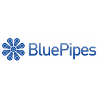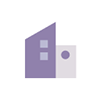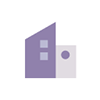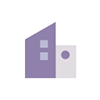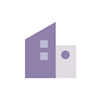- JOB SUMMARY
- The Staff Nurse applies and demonstrates knowledge of the delivery of professional nursing care, including all aspects of practice, as defined by the MN Board of Nursing and reinforced in St.
- Lukes policies. Plans, delegates to, and organizes nursing personnel. Manages and coordinates information between patient, family and healthcare team members;
provides for education of patients families and staff and evaluates outcomes.
- MINIMUM QUALIFICATIONS
- Education : See Licensure / Certification / Registration requirements.
Experience : N / A
Licensure / Certification / Registration : Current license in Minnesota to practice as Registered Nurse. ACLS certification within twelve (12) months of employment.
TNCC certification must be current or obtained one time within twenty-four (24) months of employment (TNCC need not be renewed).
Successful completion of orientation to include assigned ECG and Critical Care modules as determined by Nurse Manager and Critical Care Educator.
BLS Certification with a designation of either BLS Provider or Healthcare Provider from either the American Heart Association or American Red Cross, or Military Training Network.
- PREFERRED QUALIFICATIONS
- Education : N / A
Experience : One (1) year recent acute care nursing experience.
Licensure / Registration / Certification : Preference given to individuals with current ACLS certification. PCCN certification desirable.
- KNOWLEDGE, SKILLS AND ABILITIES
- Knowledge of current principles and techniques of nursing practice; knowledge of the practical application of the nursing process and physical assessment.
- Ability to function as a team leader, primary nurse and role model; to accept individual responsibility and accountability for decisions and outcome;
- to communicate effectively with patients, families, personnel and Physicians and establish professional working relationships with the same;
to recognize the legal limits of nursing practice; to maintain professional competency through continuing education and independent study.
Ability to support St. Lukes goals and objectives.
READING - Advanced : Ability to read, analyze, and interpret the most complex documents. Ability to respond effectively to the most sensitive inquires or complaints.
- WRITING - Intermediate : Ability to write routine reports, correspondence, or procedures.
- SPEAKING - Intermediate : Ability to effectively present information in one-on-one, small group situations or before groups of customers, clients, and other employees of the organization.
- MATHEMATICAL SKILLS - Intermediate Skills : Ability to add, subtract, multiply, and divide in all units of measure, using whole numbers, common fractions, and decimals and to calculate figures and amounts such as discounts, interest, commissions, proportions, percentages, area, circumference, and volume.
Ability to compute rate, ratio, and percent and to draw or interpret bar graphs to apply concepts of basic algebra and geometry.
REASONING ABILITY - Intermediate Skills : Ability to apply common sense understanding to carry out instructions furnished in written, oral, or diagram form.
Ability to deal with problems involving several concrete variables in standardized situations.
AGE SPECIFIC COMPETENCIES : Skilled at assessment and knowledgeable of growth and development. Provides appropriate care respective to the ages of the patients served per clinical environment.
Maintains competency with Age Specific independent study requirements, with a passing score annually.
STROKE SPECIFIC COMPETENCIES - Demonstrates knowledge of signs and symptoms of stroke and the need to activate a Stroke Alert.
Skilled at providing stroke specific assessments and interventions related to the care of the stroke patient, to include but not limited to Stroke Dysphagia screening and neurologic assessments.
Completes eight (8) hours stroke specific education initially. Maintains compliance in acquiring stroke specific education annually as required for Primary Stroke Certification.
- PHYSICAL DEMANDS AND ENVIRONMENT
- PHYSICAL DEMANDS
- Prolonged, extensive, or considerable standing / walking; lifts, positions, pushes and / or transfers patients; considerable reaching, stooping, bending, kneeling and crouching.
Ability to see, hear, stand, bend, kneel, walk and lift up to fifty (50) pounds.
Stand - Continuously Over 2 / 3 (5.5 8 hours)
- Walk - Continuously Over 2 / 3 (5.5 8 hours)
- Sit - Frequently 1 / 3 to 2 / 3 (2.5 5.5 hours)
- Use hands to finger, handle, or feel - Continuously Over 2 / 3 (5.5 8 hours)
- Reach with hands and arms - Continuously Over 2 / 3 (5.5 8 hours)
- Stoop, Squat, Kneel, or Crouch - Continuously Over 2 / 3 (5.5 8 hours)
- Bending-repetitive forward - Continuously Over 2 / 3 (5.5 8 hours)
- Talk or hear - Continuously Over 2 / 3 (5.5 8 hours)
LIFTING REQUIREMENTS
- Up to 10 pounds - Continuously Over 2 / 3 (5.5 8 hours)
- Up to 25 pounds - Continuously Over 2 / 3 (5.5 8 hours)
- Up to 35 pounds - Frequently 1 / 3 to 2 / 3 (2.5 5.5 hours)
- Up to 50 pounds - Occasionally Under 1 / 3 (1-2.5 hours)
WORK ENVIRONMENT
Typical Noise Level - Moderate noise (examples : business office with computers and printers, light traffic)
WORKING CONDITIONS
- Regularly exposed to the risk of blood borne diseases; contact with patients under wide variety of circumstances; exposed to unpleasant elements (accidents, injuries and illness);
- subject to varying and unpredictable situations; handles emergency or crisis situations; may perform emergency care; occasionally subjected to irregular hours;
occasional pressure due to multiple calls and inquiries.
PI253802348

